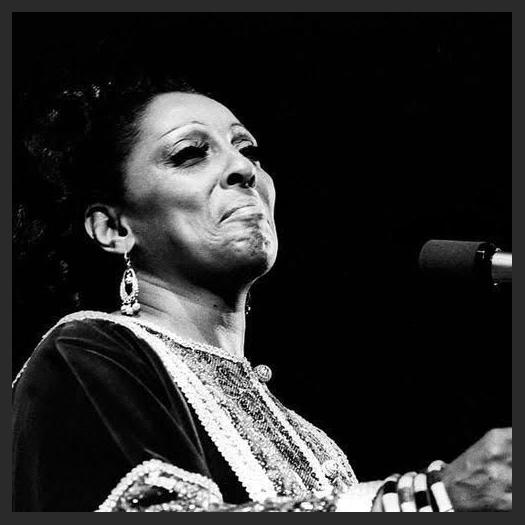 Carmen Mcrae
Carmen Mcrae
Carmen McRae: The Enchanting Voice of Jazz
Early Life and Influences:
Born Carmen Mercedes McRae in 1920, she displayed a passion for music from a tender age. Influenced by the soulful melodies of Billie Holiday and Ella Fitzgerald, McRae honed her vocal skills at local clubs in her hometown of New York City.
Challenges and Controversy:
Despite her undeniable talent, McRae faced obstacles throughout her career. In the 1950s, her outspoken nature and refusal to conform to industry norms led to controversy and limited opportunities. However, she remained resilient, proving that her voice and art could transcend societal pressures.
Signature Style:
McRae's unique vocal style was characterized by its intimacy, warmth, and impeccable timing. She possessed a remarkable ability to interpret lyrics with depth and emotion, captivating audiences with her soulful rendition of standards and original compositions.
Discography and Collaborations:
McRae released over 60 albums during her illustrious career, showcasing her versatility and collaborations with jazz greats such as Dizzy Gillespie, Miles Davis, and Count Basie. Notable recordings include "Blue Skies" (1957), "After Glow" (1959), and "Carmen McRae Sings Monk" (1964).
Members and Collaborators:
Throughout her career, McRae worked with a talented ensemble of musicians. Notable members included pianist Ray Bryant, bassist Bill Crow, and drummer Jimmy Cobb. Together, they created a cohesive and dynamic sound that perfectly complemented McRae's vocals.
Legacy and Impact:
Carmen McRae left an indelible mark on the world of jazz. Her enduring artistry, unwavering spirit, and exceptional vocal abilities continue to inspire generations of musicians and music lovers alike. Her legacy as a pioneer and a true interpreter of the human experience remains forever etched in the annals of music history.
Early Life and Influences:
Born Carmen Mercedes McRae in 1920, she displayed a passion for music from a tender age. Influenced by the soulful melodies of Billie Holiday and Ella Fitzgerald, McRae honed her vocal skills at local clubs in her hometown of New York City.
Challenges and Controversy:
Despite her undeniable talent, McRae faced obstacles throughout her career. In the 1950s, her outspoken nature and refusal to conform to industry norms led to controversy and limited opportunities. However, she remained resilient, proving that her voice and art could transcend societal pressures.
Signature Style:
McRae's unique vocal style was characterized by its intimacy, warmth, and impeccable timing. She possessed a remarkable ability to interpret lyrics with depth and emotion, captivating audiences with her soulful rendition of standards and original compositions.
Discography and Collaborations:
McRae released over 60 albums during her illustrious career, showcasing her versatility and collaborations with jazz greats such as Dizzy Gillespie, Miles Davis, and Count Basie. Notable recordings include "Blue Skies" (1957), "After Glow" (1959), and "Carmen McRae Sings Monk" (1964).
Members and Collaborators:
Throughout her career, McRae worked with a talented ensemble of musicians. Notable members included pianist Ray Bryant, bassist Bill Crow, and drummer Jimmy Cobb. Together, they created a cohesive and dynamic sound that perfectly complemented McRae's vocals.
Legacy and Impact:
Carmen McRae left an indelible mark on the world of jazz. Her enduring artistry, unwavering spirit, and exceptional vocal abilities continue to inspire generations of musicians and music lovers alike. Her legacy as a pioneer and a true interpreter of the human experience remains forever etched in the annals of music history.